I first encountered the story of the Passion of St. John the Baptist in the Bible I received from my godparents when I made my First Holy Communion. I sometimes think I am remembering wrong because the horrifying picture of his head on a platter seems like an image the editors might have chosen to omit from a children’s Bible! But predictably I was fascinated by that picture.
But today I want you to imagine that you are Herod. Because I think we are all a little bit like Herod in this story. Place yourself in the Scripture reading and immerse yourself in the scene.
Herod did not want to kill John. “He liked to listen to him,” and believed that he was a “righteous and holy man.” But Herod made a foolish error. Why? Because he was showing off for his niece and his guests. He was making a display of his generosity and power, and Herodias trapped him neatly. Now, Herod could have refused to execute John. He could have made some excuse. Instead, even though he “was deeply distressed” he did as she asked “because of his oaths and the guests.” Herod succumbed to peer pressure. He did not want to look bad in front of others. He did not want them to think him weak, but in reality he demonstrated weakness by a response rooted in fear rather than strength.When we act out of embarrassment or fear we make bad choices. We go along to get along, but what are we really showing others about ourselves?
Years ago I read a novel set in the 1960’s in which a white family adopted a Black child. Their community reacted with racism. Their daughter berated them for not thinking how this would affect their other children. The father was a minister and his parishioners complained. In the end, the parents returned the child. Imagine their surprise when their daughter was disappointed in them and the congregation asked them to leave. Although they had questioned the adoption, they had respected the minister as a man of principle and conviction whose capitulation revealed to them his weakness.
Because it is so common to live a life ruled by fear of the opinions of others, I can relate to Herod in this scene even though I cannot imagine myself decapitating someone! Herod did not have these words from Thessalonians for guidance, but we would do well to take them to heart: “That is how we speak, not as trying to please men, but rather God, who judges our hearts . . . nor did we seek praise from men, either from you or from others . . .” And we should remember the brave example of St. John the Baptist, who spoke truth to the powers that be even though he must have known it could cost him his life.
Encontré la historia de la Pasión de San Juan Bautista por primera vez en la Biblia que recibí de mis padrinos cuando hice mi Primera Comunión. ¡A veces pienso que estoy recordando mal porque la horrible imagen de su cabeza en un plato parece una imagen que los editores podrían haber elegido omitir de una Biblia para niños! Pero obviamente, por eso estaba fascinado por la imagen.
Pero hoy quiero que te imagines que eres Herodes. Porque creo que todos somos un poco como Herodes en esta historia. Colócate en la lectura de las Escrituras y sumérjete en la escena.
Herodes no quería matar a Juan. “Le gustaba escucharlo”, y creía que era un “hombre justo y santo”. Pero Herodes cometió un error tonto. ¿Por qué? Porque estaba presumiendo para su sobrina y sus invitados. Estaba haciendo una demostración de su generosidad y poder, y Herodías lo atrapó fácilmente. Ahora, Herodes podría haberse negado a ejecutar a Juan. Podría haber puesto alguna excusa. En cambio, aunque “estaba profundamente angustiado”, hizo lo que ella le pidió “debido a sus juramentos y a los invitados”. Herodes cayó bajo la presión de sus compañeros. No quería quedar mal frente a los demás. No quería que pensaran que era débil, pero en realidad su respuesta demostró debilidad en lugar de fuerza. Cuando actuamos por vergüenza o miedo, tomamos malas decisiones. Nos llevamos bien para llevarnos bien, pero ¿qué estamos mostrando realmente a los demás sobre nosotros mismos?
Hace años leí una novela ambientada en la década de 1960 en la que una familia blanca adoptaba a un niño negro. Su comunidad reaccionó con racismo. Su hija los reprendió por no pensar cómo afectaría a sus otros hijos. El padre era ministro y sus feligreses se quejaron. Al final, los padres devolvieron al niño. Imagínense su sorpresa cuando su hija se decepcionó de ellos y la congregación les pidió que se fueran. Aunque habían cuestionado la adopción, habían respetado al ministro como un hombre de principios y convicciones cuya capitulación les reveló su debilidad.
Debido a que es tan común vivir una vida regida por el miedo a las opiniones de los demás, puedo relacionarme con Herodes en esta escena, ¡aunque no puedo imaginarme decapitando a alguien! Herodes no tuvo estas palabras de Tesalonicenses como guía, pero haríamos bien en tomarlas en serio: “Así es como hablamos, no tratando de agradar a los hombres, sino a Dios, quien juzga nuestros corazones. . . ni buscamos la alabanza de los hombres, ni de ti ni de los demás. . .” Y debemos recordar el valiente ejemplo de San Juan Bautista, quien dijo la verdad a los poderosos a pesar de que seguramente supo que podría costarle la vida.
 Leslie Sholly is a Catholic, Southern wife and mother of five, living in her hometown, Knoxville, Tennessee. She graduated from Georgetown University with an English major and Theology minor. She blogs at Life in Every Limb, where for 11 years she has covered all kinds of topics, more recently focusing on the intersection of faith, politics, and social justice.
Leslie Sholly is a Catholic, Southern wife and mother of five, living in her hometown, Knoxville, Tennessee. She graduated from Georgetown University with an English major and Theology minor. She blogs at Life in Every Limb, where for 11 years she has covered all kinds of topics, more recently focusing on the intersection of faith, politics, and social justice.
Feature Image Credit: vperez, pixabay.com/photos/john-the-baptist-bust-tulsa-head-433336/
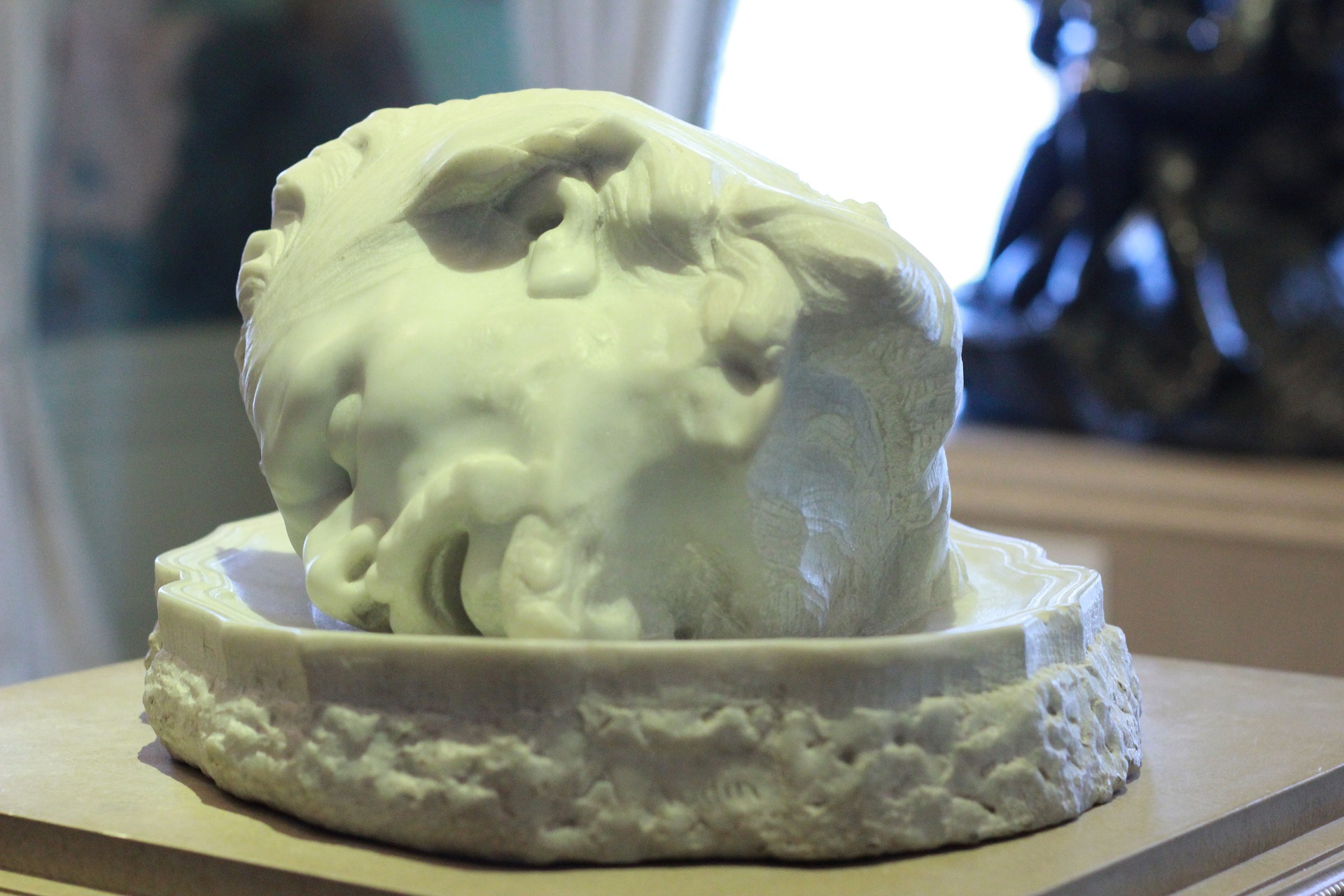
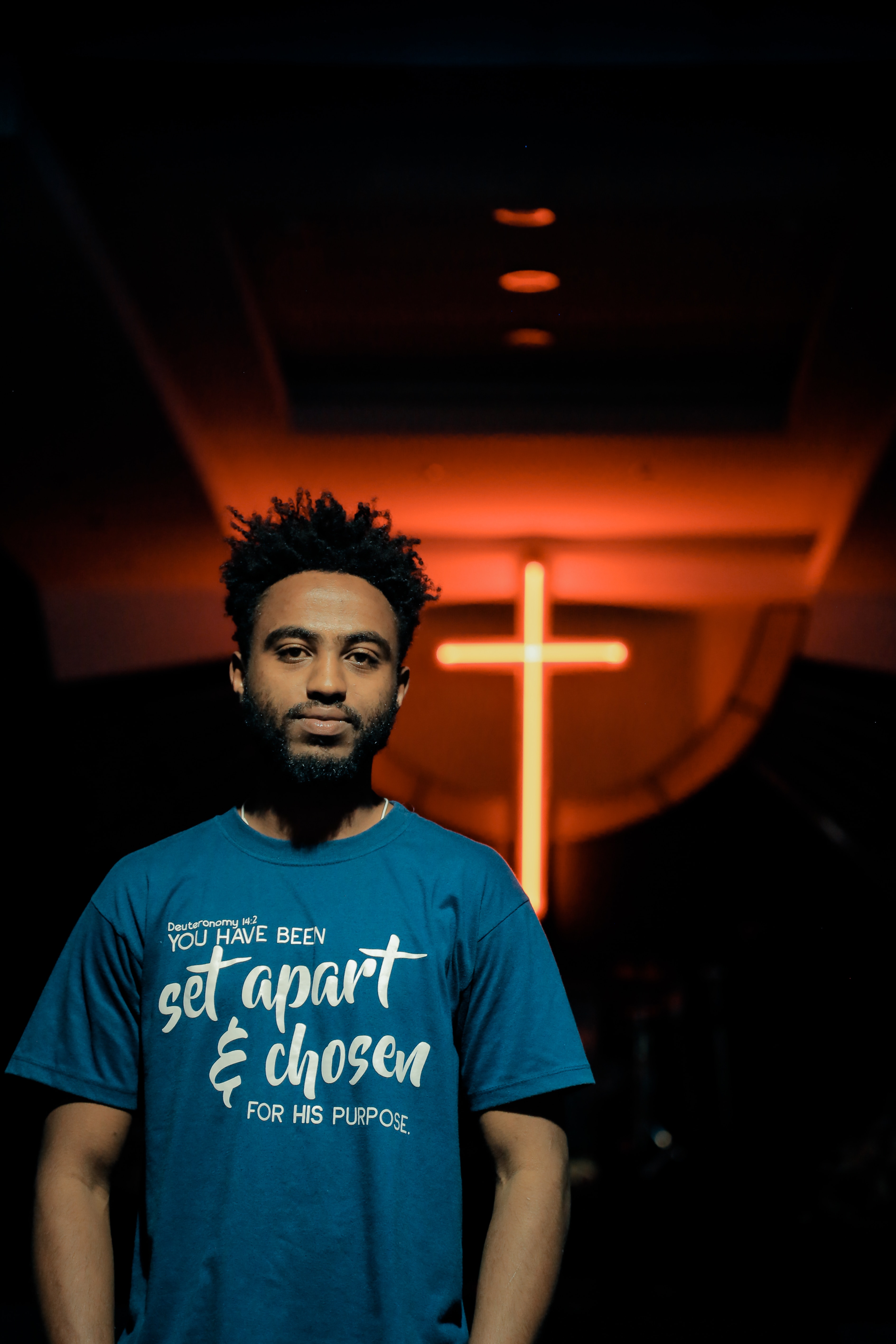
 Deacon Dan Schneider is a retired general manager of industrial distributors. He and his wife Vicki have been married for over 50 years. They are the parents of eight children and thirty grandchildren. He has a degree in Family Life Education from Spring Arbor University. He was ordained a Permanent Deacon in 2002. He has a passion for working with engaged and married couples and his main ministry has been preparing couples for marriage.
Deacon Dan Schneider is a retired general manager of industrial distributors. He and his wife Vicki have been married for over 50 years. They are the parents of eight children and thirty grandchildren. He has a degree in Family Life Education from Spring Arbor University. He was ordained a Permanent Deacon in 2002. He has a passion for working with engaged and married couples and his main ministry has been preparing couples for marriage.
 Tami Urcia grew up in Western Michigan, a middle child in a large Catholic family. She spent early young adulthood as a missionary in Mexico, studying theology and philosophy, then worked and traveled extensively before finishing her Bachelor’s Degree in Western Kentucky. She loves tackling projects, finding fun ways to keep her little ones occupied, quiet conversation with the hubby and finding unique ways to love. She works full time, is a guest blogger on
Tami Urcia grew up in Western Michigan, a middle child in a large Catholic family. She spent early young adulthood as a missionary in Mexico, studying theology and philosophy, then worked and traveled extensively before finishing her Bachelor’s Degree in Western Kentucky. She loves tackling projects, finding fun ways to keep her little ones occupied, quiet conversation with the hubby and finding unique ways to love. She works full time, is a guest blogger on 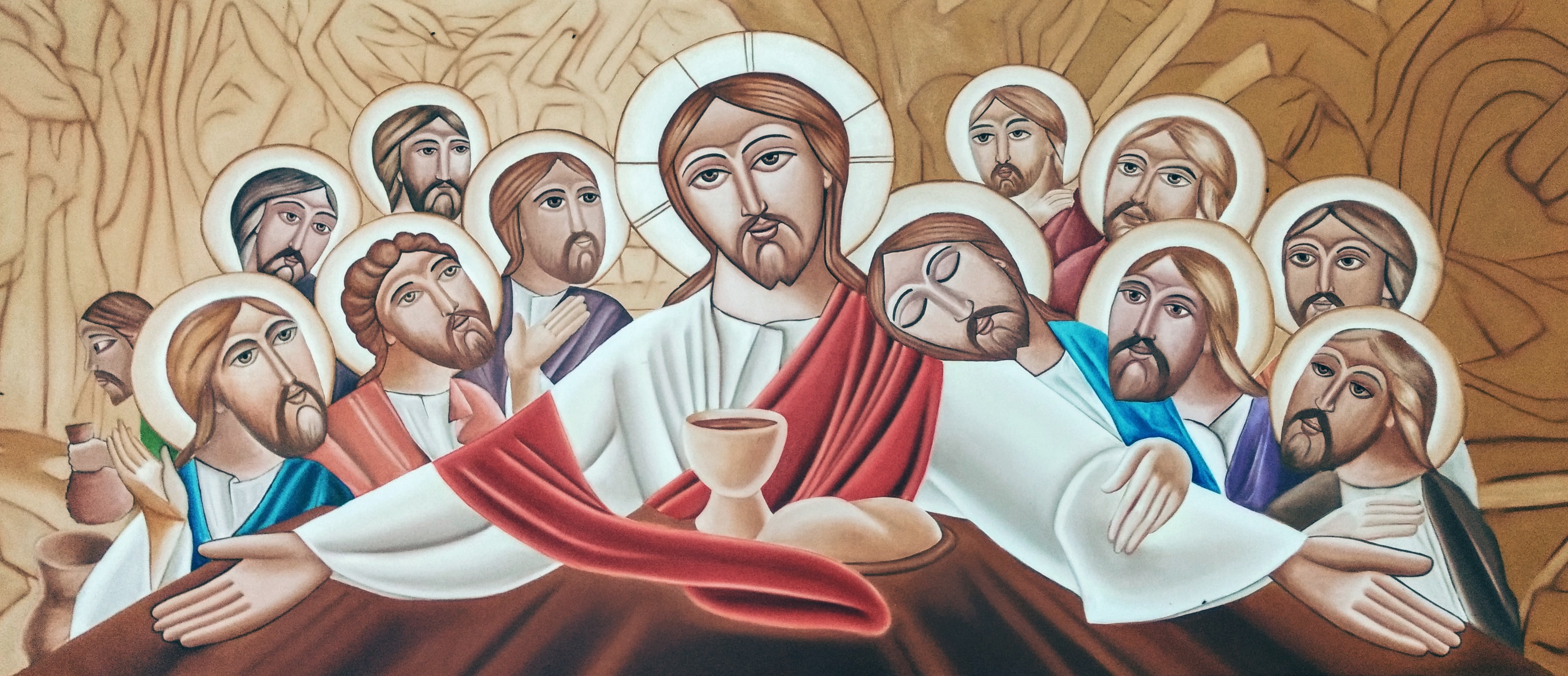

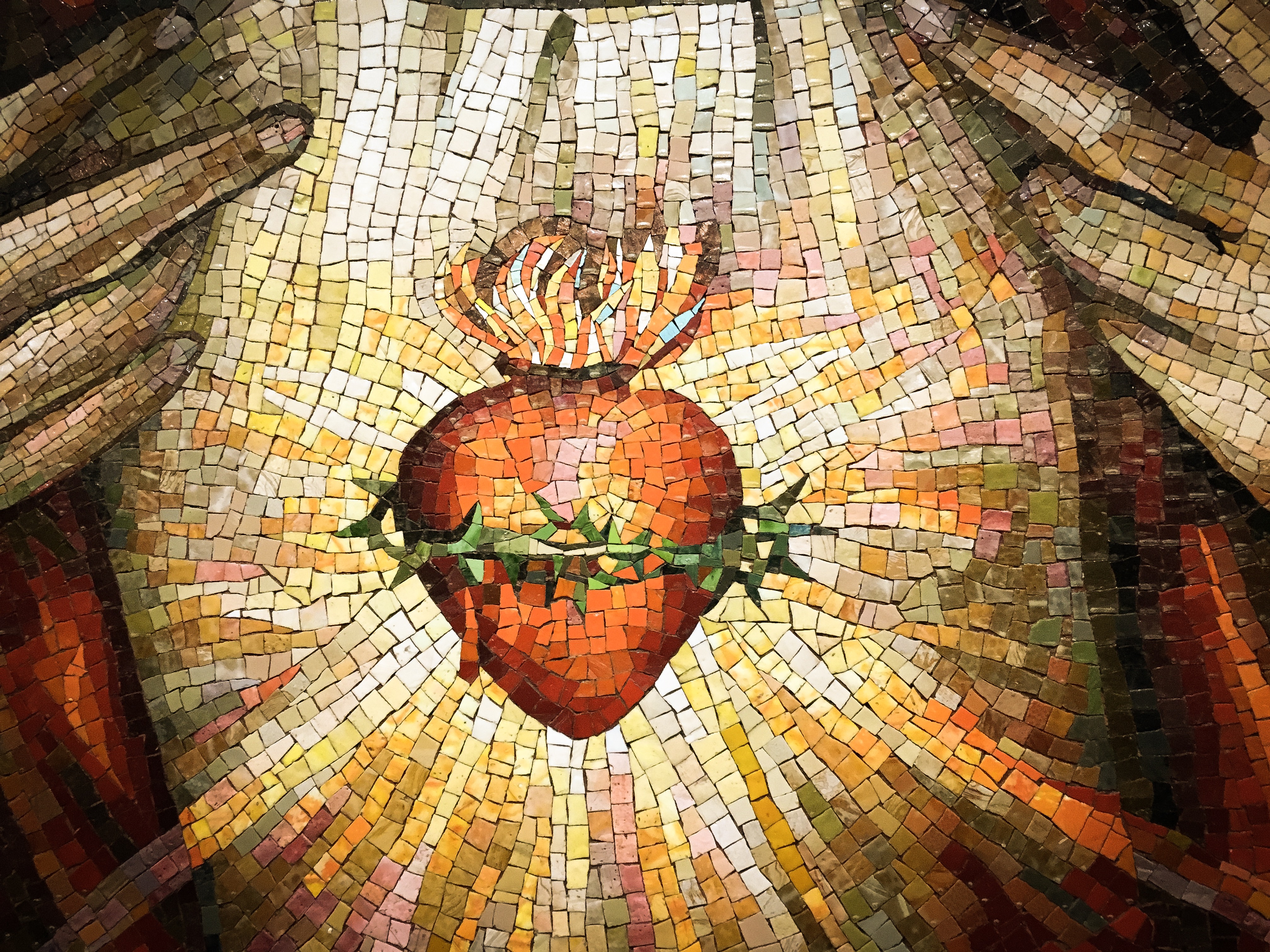

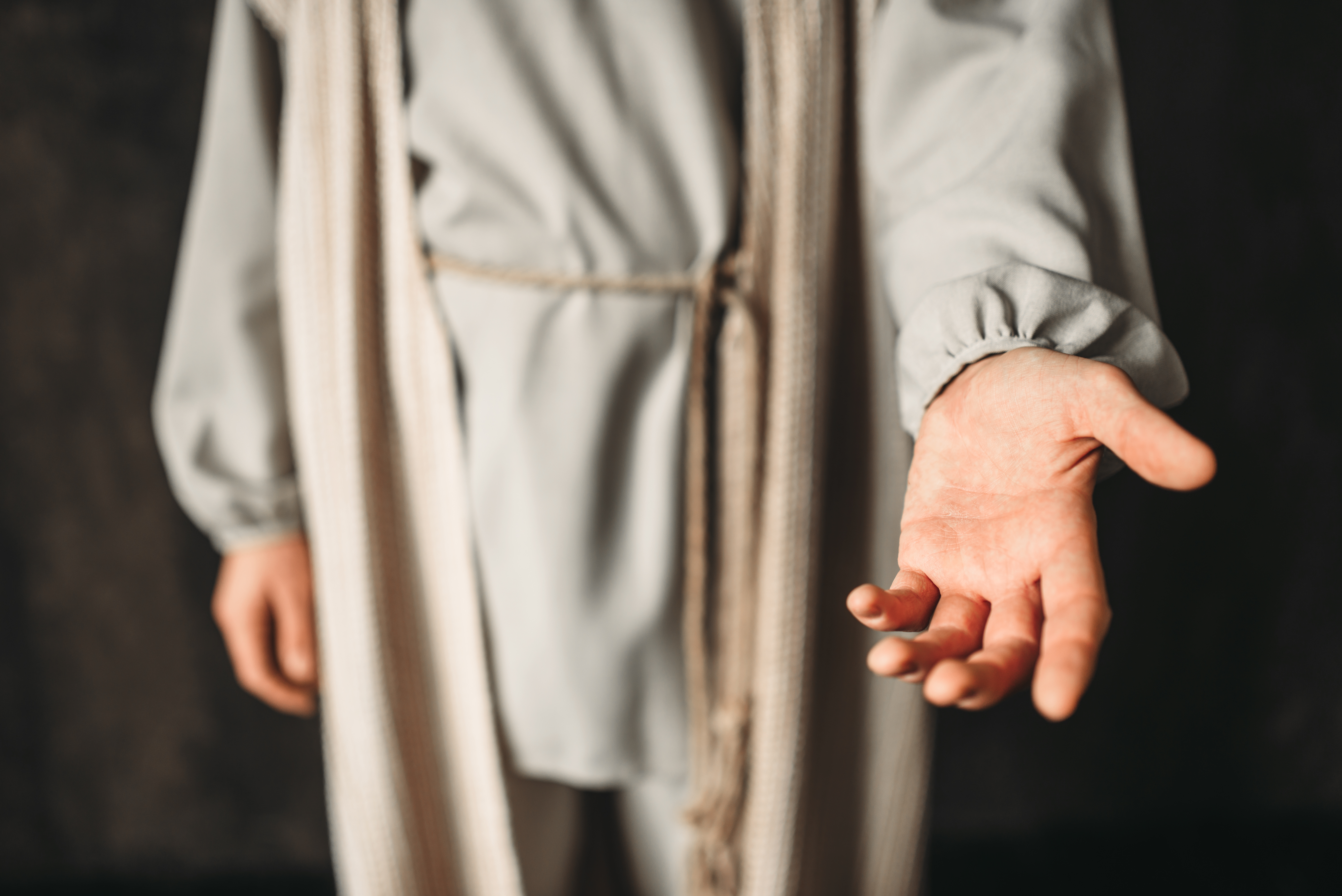
 David Dashiell is a freelance author and editor in Nashville, Tennessee. He has a master’s degree in theology from Franciscan University, and is the editor of the anthology
David Dashiell is a freelance author and editor in Nashville, Tennessee. He has a master’s degree in theology from Franciscan University, and is the editor of the anthology 
 Kathryn Mulderink, MA, is married to Robert, Station Manager for Holy Family Radio. Together they have seven children (including Father Rob), and seven grandchildren. She is President of the local community of Secular Discalced Carmelites and has published five books and many articles. Over the last 30 years, she has worked as a teacher, headmistress, catechist, Pastoral Associate, and DRE, and as a writer and voice talent for Catholic Radio. Currently, she serves the Church by writing and speaking, and by collaborating with various parishes and to lead others to encounter Christ and engage their faith. Her website is
Kathryn Mulderink, MA, is married to Robert, Station Manager for Holy Family Radio. Together they have seven children (including Father Rob), and seven grandchildren. She is President of the local community of Secular Discalced Carmelites and has published five books and many articles. Over the last 30 years, she has worked as a teacher, headmistress, catechist, Pastoral Associate, and DRE, and as a writer and voice talent for Catholic Radio. Currently, she serves the Church by writing and speaking, and by collaborating with various parishes and to lead others to encounter Christ and engage their faith. Her website is 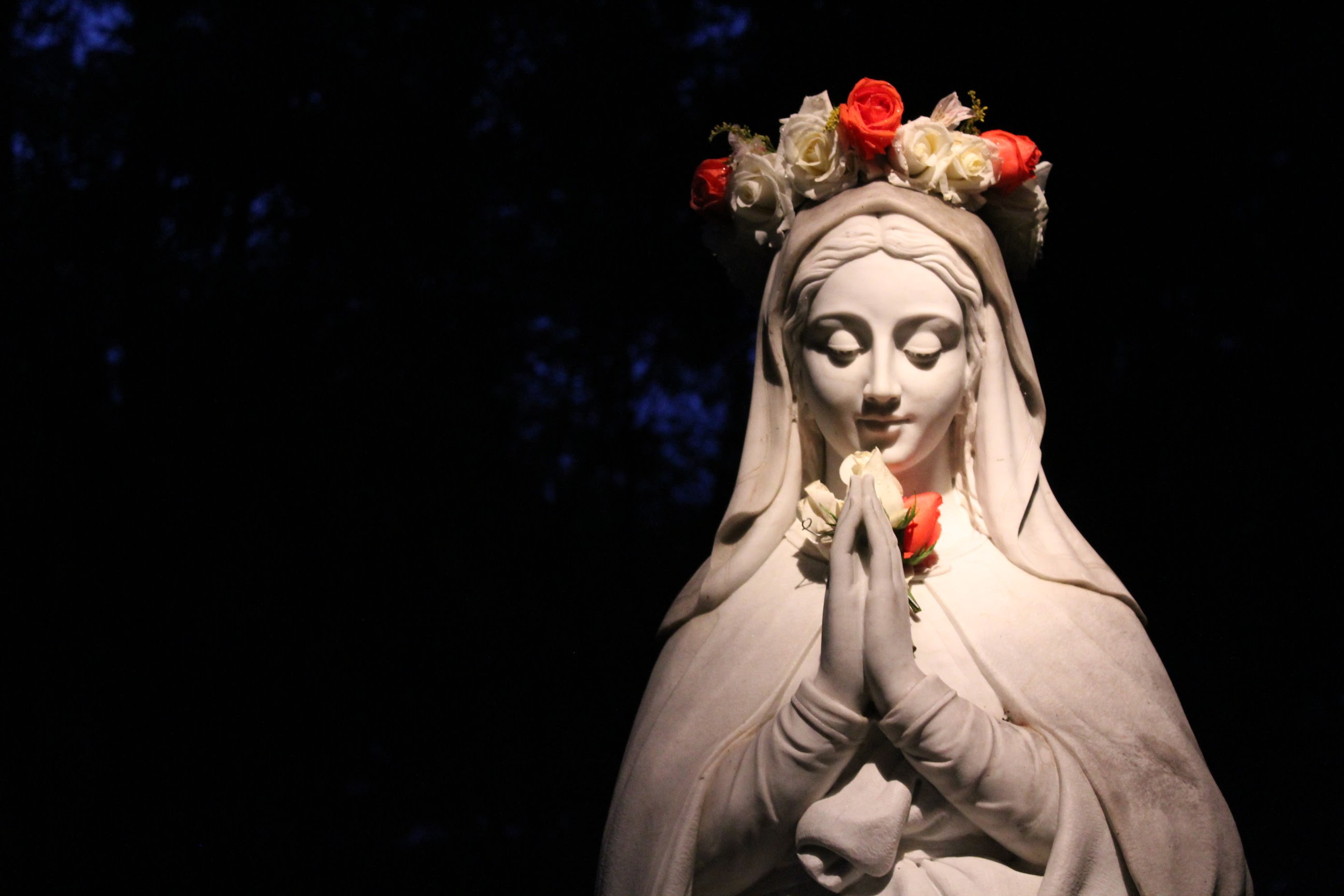
 Allison Gingras (
Allison Gingras ( 
 Dakota lives in Denver, CO with her husband, Ralph, and their two sons, Alfie & Theophilus. She is the Dean of Enrollment Management for Bishop Machebeuf High School where her husband also teaches. You can find Dakota at the zoo or a brewery with her family or with her nose in a book at home. For more of Dakota’s writing check out
Dakota lives in Denver, CO with her husband, Ralph, and their two sons, Alfie & Theophilus. She is the Dean of Enrollment Management for Bishop Machebeuf High School where her husband also teaches. You can find Dakota at the zoo or a brewery with her family or with her nose in a book at home. For more of Dakota’s writing check out 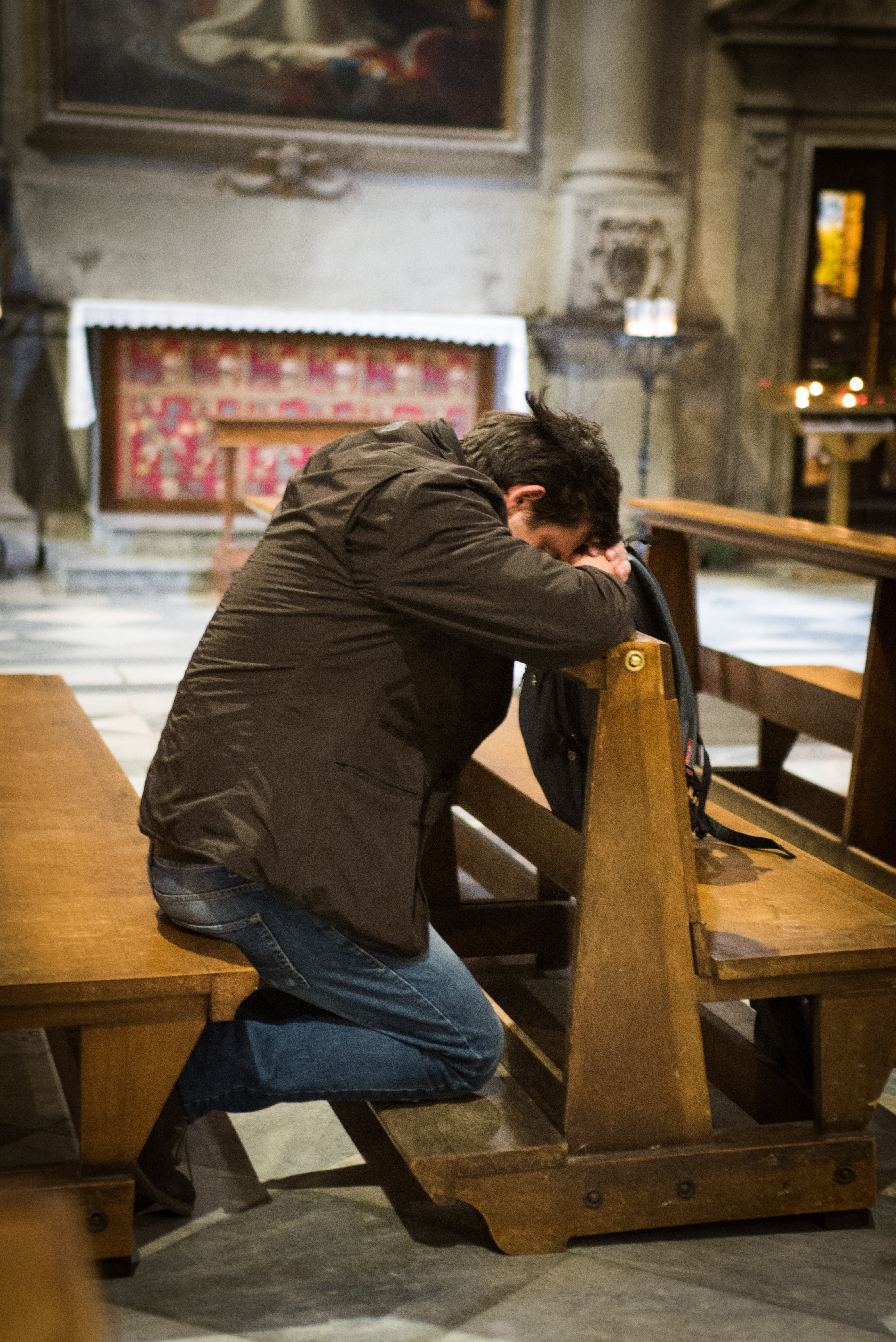
 A lover of Jesus Christ, a wife, and a mother of five, Christine is the author of Everyday Heroism: 28 Daily Reflections on the Little Way of Motherhood. She is a graduate of Franciscan University, an instructor for the Institute for Excellence in Writing, and an experienced catechist. Thrilled to have recently become grandparents, she and her husband currently live in Upstate, NY. Visit her author webpage at
A lover of Jesus Christ, a wife, and a mother of five, Christine is the author of Everyday Heroism: 28 Daily Reflections on the Little Way of Motherhood. She is a graduate of Franciscan University, an instructor for the Institute for Excellence in Writing, and an experienced catechist. Thrilled to have recently become grandparents, she and her husband currently live in Upstate, NY. Visit her author webpage at 
 Sheryl is happy to be the number 1 cheerleader and supporter for her husband, Tom who is a candidate for the Permanent Diaconate in the Diocese of Kalamazoo. They are so grateful for the opportunity to grow together in this process. Sheryl’s day job is serving her community as the principal for St. Therese Catholic School in Wayland, Michigan. Since every time she thinks she gets life all figured out, she realizes just how far she has to go, St. Rita of Cascia is her go-to Saint for intercession and help. Home includes Carlyn, a very, very goofy Golden Retriever and Lucy, our not-so-little rescue puppy.
Sheryl is happy to be the number 1 cheerleader and supporter for her husband, Tom who is a candidate for the Permanent Diaconate in the Diocese of Kalamazoo. They are so grateful for the opportunity to grow together in this process. Sheryl’s day job is serving her community as the principal for St. Therese Catholic School in Wayland, Michigan. Since every time she thinks she gets life all figured out, she realizes just how far she has to go, St. Rita of Cascia is her go-to Saint for intercession and help. Home includes Carlyn, a very, very goofy Golden Retriever and Lucy, our not-so-little rescue puppy. 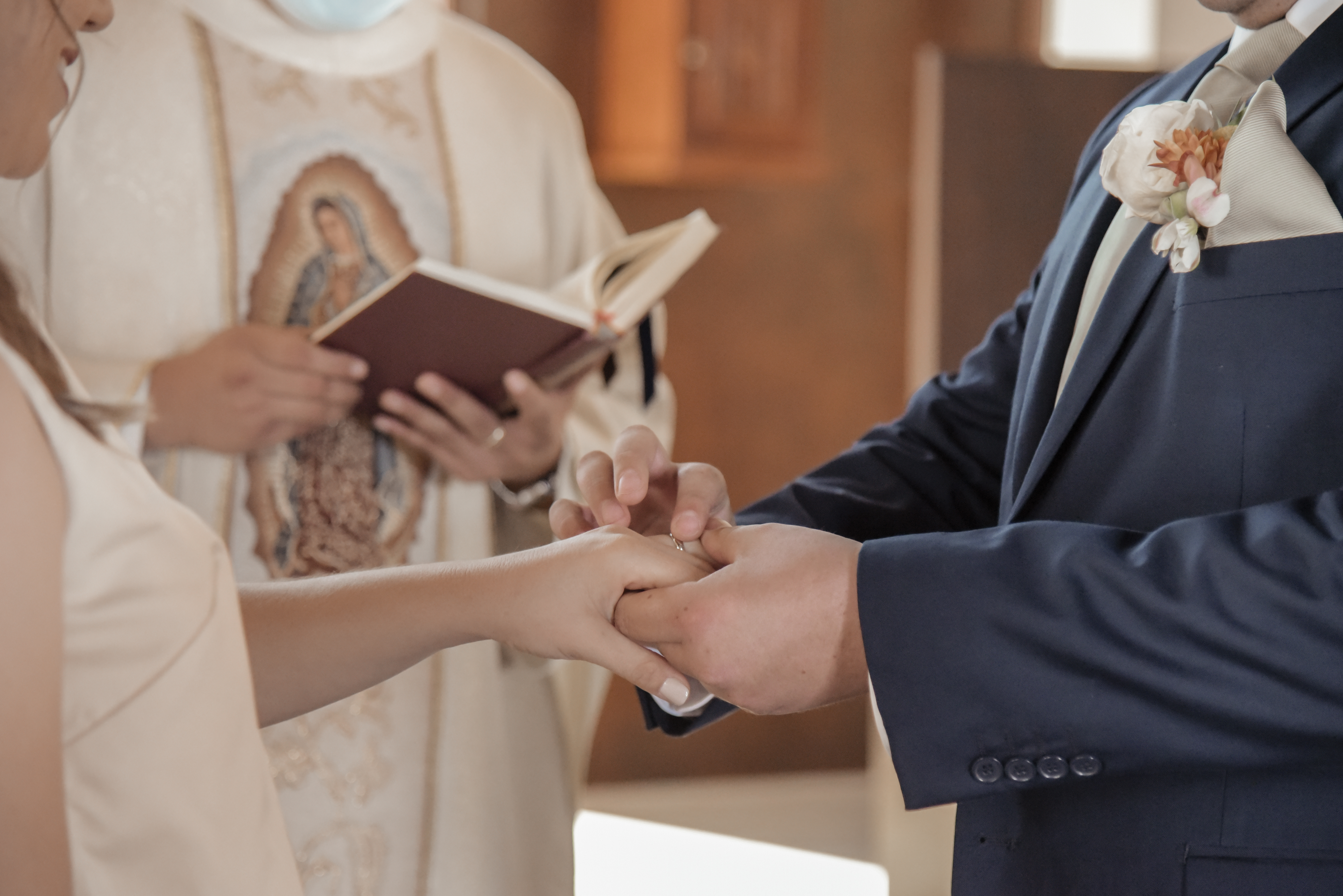
 Mike Karpus is a regular guy. He grew up in Michigan’s Upper Peninsula, graduated from Michigan State University and works as an editor. He is married to a Catholic school principal, raised two daughters who became Catholic school teachers at points in their careers, and now relishes his two grandchildren, including the older one who is fascinated with learning about his faith. He also has served on a Catholic school board, a pastoral council and a parish stewardship committee. He currently is a lector at Mass, a Knight of Columbus, Adult Faith Formation Committee member and a board member of the local Habitat for Humanity organization. But mostly he’s a regular guy.
Mike Karpus is a regular guy. He grew up in Michigan’s Upper Peninsula, graduated from Michigan State University and works as an editor. He is married to a Catholic school principal, raised two daughters who became Catholic school teachers at points in their careers, and now relishes his two grandchildren, including the older one who is fascinated with learning about his faith. He also has served on a Catholic school board, a pastoral council and a parish stewardship committee. He currently is a lector at Mass, a Knight of Columbus, Adult Faith Formation Committee member and a board member of the local Habitat for Humanity organization. But mostly he’s a regular guy.